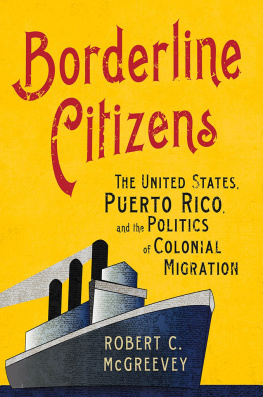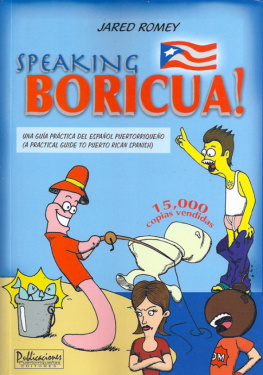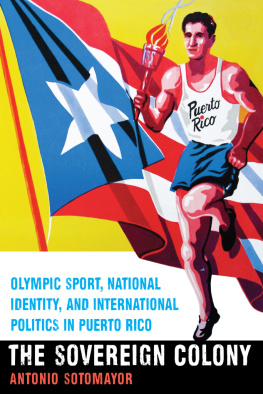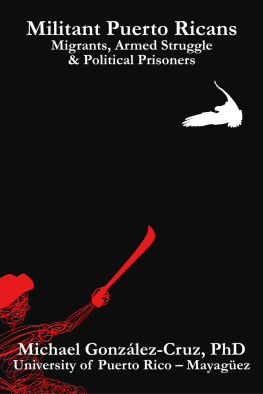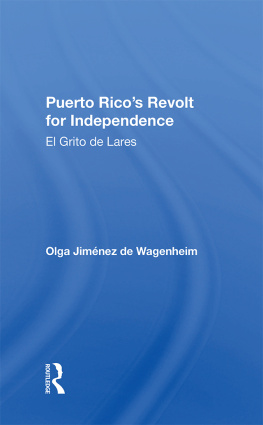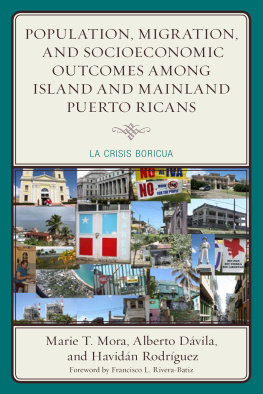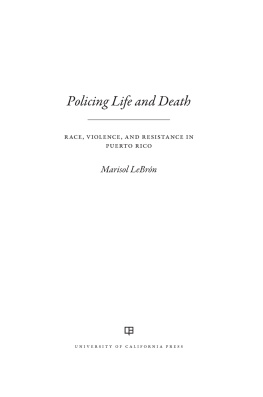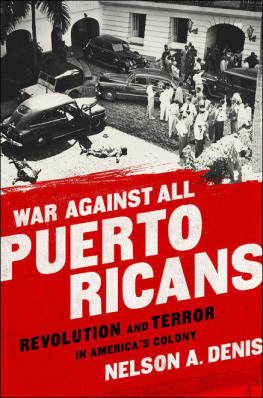Acknowledgments
This book began nearly ten years ago. Since then, the United States in the World field has developed rapidly to include exciting new studies that globalize the study of American history. As I have written this book, I have come to know many of those working in this field, and I have incurred many debts. It is a pleasure to thank all of those who have lent me their support and encouragement over the years.
I have been privileged to work with an extraordinary group of historians who have profoundly shaped my view of the world and my career as a historian. At Swarthmore, I thank in particular Timothy Burke, Bruce Dorsey, Pieter Judson, and Marjorie Murphy for opening new worlds to me. At Brandeis, I had the great fortune of working with David Engerman, Jacqueline Jones, Jane Kamensky, and Michael Willrich. Their influence can be seen throughout this book. I also thank Silvia Arrom and Peter Winn for tutoring me in Latin American history and encouraging me in my work. I owe special thanks to Christopher Capozzola for his invaluable feedback as I wrote this book and for becoming a great mentor to me.
For the financial resources needed to travel to archives and write the manuscript, I am grateful for the support of the Crown fellowship from Brandeis University, the Stuart L. Bernath Dissertation Fellowship from the Society for Historians of American Foreign Relations, and the John Higham Travel Award from the Immigration and Ethnic History Society and the Organization of American Historians. At the College of New Jersey, I thank Provost Jacqueline Taylor and the office of Academic Affairs for supporting my sabbatical leave in 201516, as well as a series of summer research assistants and course releases that aided me in completing the revisions. I also thank the editors of the Journal of the Gilded Age and Progressive Era for allowing me to reproduce some material that first appeared in my article Empire and Migration: Coastwise Shipping, National Status, and the Colonial Legal Origins of Puerto Rican Migration to the United States, Journal of the Gilded Age and Progressive Era 11, no. 4 (October 2012): 55373.
I extend my gratitude to the many archivists who have worked with me patiently, even when I asked repeatedly, Is there another box? In Puerto Rico, I worked closely with Miguel Vega, librarian of the Colleccin Puertorriquea at the University of Puerto Rico, and I am deeply grateful for his expert guidance in navigating the extensive newspaper collection there that is not yet digitized. I also thank Mara Ordez, director of the Colleccin Puertorriquea, for welcoming me over several visits. In the Archivo General de Puerto Rico, I owe a special thanks to archivist Mara Isabelle Rodrguez for helping me track down U.S. colonial records deep within the stacks. During my time in the Archivo, I had many fruitful conversations with other researchers. I thank, in particular, Raquel Rosario Rivera, who lent me her favorite seat in the archive and offered several leads as to where I might find documents related to citizenship, and Fernando Pic for pointing me in the right direction on more than one occasion when I thought I had reached a dead end.
In New York, at the Centro de Estudios Puertorriqueos at Hunter College, I thank Pedro Juan Hernndez for his assistance in tracking down numerous manuscript collections and newspapers. I also thank those who helped me in the National Archives Northeast regional branch in Manhattan as well as the staff of the New York Public Library. In Washington, DC, I thank the staff of the Library of Congress. I also owe special thanks to the archivists of the U.S. House and Senate records in the National Archives who took me into the stacks to access committee records rarely used by researchers and worked with me, seemingly around the clock, for many months. In Maryland, I thank the highly efficient staff at the National Archives in College Park and at the George Meany Memorial Archive of the University of Maryland. In Boston, many thanks to the expert staff at Widener Library, Baker Library, Brandeis University Library, Boston Public Library, and the National Archives Northeast Region Headquarters.
For their encouragement, savvy, and good cheer, I thank a wonderful group of colleagues at Brandeis: Clara Altman, Alexis Antracoli, Yoni Applebaum, Noelani Arista, Lindsay Silver Cohen, Denise Damico, Jonathan De-Coster, P. J. Dickson, Robert Heinrich, Benjamin Irvin, Jeremy Kuzmarov, Shane Landrum, Jessica Lepler, Gabriel Loicaono, Molly McCarthy, Hilary Moss, Jason Opal, Matthew Pehl, Greg Renoff, Paul Ringel, Nathan Rives, Eric Schlereth, David Soll, Emily Straus, Frederick Turner, William Walker, Jeff Wiltse, and Lynda Yankaskas.
During my time at Vanderbilt, I had the privilege of getting to know Gary Gerstle, Sarah Igo, and Elizabeth Lunbeck and I am grateful for the welcome they showed me. In the history department at the College of New Jersey, I have had the great fortune of being surrounded by colleagues who are passionately committed to both teaching and research. For their encouragement and stalwart support, I thank Mekala Audain, Dina Boero, Matthew Bender, William Carter, Celia Chazelle, Daniel Crofts, Christopher Fisher, Jo-Ann Gross, Craig Hollander, Alejandra Irigoin, Adam Knobler, Roman Kovalev, Xinru Liu, Michael Marino, Ann Marie Nicolosi, Cynthia Paces, Qin Shao, and Jodi Weinstein. Deans Deborah Compte, Benjamin Rifkin, John Sisko, and Jane Wong offered vital support for my work. For help with the images and bibliography, I thank our humanities librarian, David Murray, as well as Laura Hargreaves, Faith Newins, and Andrew Vitale. I am also grateful to my many students who have taken an interest in this project, in particular Steven Rodriguez and E. Kyle Romero who worked with me as summer research assistants and are now well on their way to becoming historians themselves.
In a variety of conferences, seminars, and more informal conversations, I have benefited from the advice and constructive feedback of many gifted and generous historians, including Eiichiro Azuma, Sven Beckert, Katherine Benton-Cohen, Brooke Blower, Denise Bossy, Alison Bruey, Dale Clifford, Benjamin Coates, Steven Cohen, David Courtwright, Mary Dudziak, Eileen Findlay, Greg Grandin, Julie Greene, Cindy Hahamovitch, Hendrik Hartog, Jesse Hoffnung-Garskof, Kristin Hoganson, Madeline Hsu, Julia Irwin, Noam Maggor, Daniel Margolies, David Montgomery, Mae Ngai, Christopher Nichols, Meredith Oyen, Christina Duffy Ponsa, Gunther Peck, Nicole Phelps, Efrn Rivera Ramos, Lucy Salyer, Aaron Sheehan-Dean, Bryant Simon, Rachel St. John, Alan Taylor, Lorrin Thomas, Andrew Urban, Richard White, and Judy Tzu-Chun Wu.
At Cornell University Press, many thanks to my editor, Michael McGandy, for guiding me through the process of revision with sage advice and good humor. I also thank my production editor, Susan Specter, and her colleagues, Karen Carroll, Lisa DeBoer, William Nelson, and Bethany Wasik for all their help in copyediting the text and preparing the images and maps. I am deeply indebted to the anonymous readers whose insightful comments on earlier drafts made this a significantly better book. I also owe special thanks to Paul Kramer, who showed an interest in this project at a very early stage and has since become a great mentor, guiding me in framing my arguments and clarifying my contributions.
Finally, I thank my friends and family who have made it all possible. To those who have been with me for the duration, housing me during research trips, distracting me when I hit a wall with writing, and generally making my life a lot more fun, I thank Seth Budick, Jill Clark, Catherine Chu, Melissa Dustin, Julie Falk, Matthew and Michelle Halpern, Fatimah Johnson, Dana Lehman, Sam Merabi, Tara Schubert, Heather Schwartz, Jesse Shore, Amy and Peter Sollins, Darian Unger. My parents, Jack and Dianne McGreevey, cultivated my inquisitive nature from a young age. Though my path to eventually becoming a historian took me to far-off places, and my parents might have preferred that I stay closer to home, they have supported me in more ways than I can count and celebrated each of my achievements with love. My brothers John and Michael have been treasured companions, cheering me on from the East and West Coasts. My extended family, Sharon and Michael Clifford, the Godin clan, Carol Hu, Mimi Kavanagh, Gal Kober, and Aaron Shakow have further enriched my life and, thankfully, known when to ask me about my book and when not to. Carol Shakow and Melvin Leiman have become like second parents to me, nourishing me with their Provenale cooking and good conversation, and routinely flying in from Seattle to help take care of the kids. I thank my sons Theo and Jacob, my pride and joy, for bringing a bit of magic to each day. And last but certainly not least, I thank Miriam Shakow who has been with me for the long haul and who has read more drafts of this manuscript than anyone else. This book is dedicated to her.

